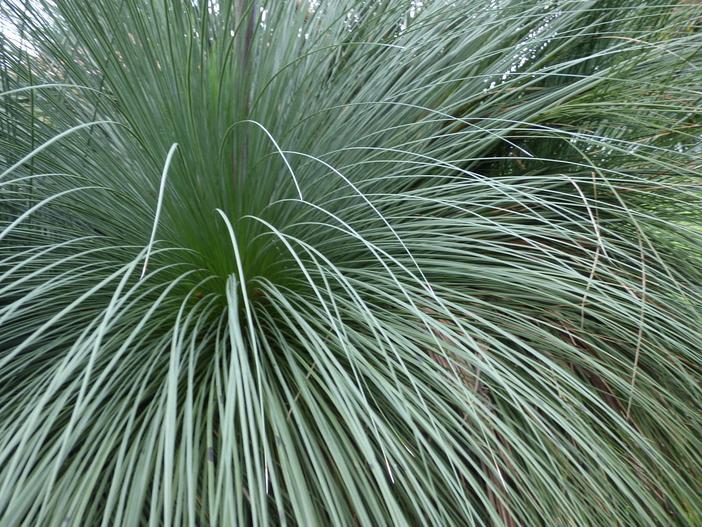Balga
(Xanthorrhoea preissii)
Balga (Xanthorrhoea preissii)
/
/

Forest and Kim Starr
CC BY 2.0
Image By:
Forest and Kim Starr
Recorded By:
Copyright:
CC BY 2.0
Copyright Notice:
Photo by: Forest and Kim Starr | License Type: CC BY 2.0 | License URL: https://creativecommons.org/licenses/by/2.0/ | Uploader: Starr Environmental | Publisher: Flickr













































Estimated Native Range
Summary
Xanthorrhoea preissii, commonly known as Balga or Grass Tree, is an evergreen perennial monocot that resembles a tree and is native to the sandy plains and sclerophyll forests of Western Australia. It is well-adapted to its environment, often found in heathlands and open woodlands where it plays a significant role in the ecology by providing habitat for various species. Balga can grow over 3 meters tall, with a thick, often blackened trunk that bears evidence of its remarkable fire resistance. The long, bunched, grass-like leaves emerge from a central base, creating a unique silhouette. The inflorescence is a striking feature, with an upright spike 1.5 m to 2.5 m long that produces creamy or white sessile flowers between June and December. The flowers are particularly showy after a bushfire, which stimulates profuse blooming.
Balga is valued for its distinctive appearance, with the added benefit of being fire-resistant and drought-tolerant, making it a suitable choice for xeriscaping and native plant gardens. It is often used as a focal point in landscaping due to its dramatic form and texture. In cultivation, it thrives in full sun and requires low to medium water, preferring well-drained soils. While it is slow-growing, its longevity and low maintenance needs compensate for the initial wait. It is important to note that Balga can be sensitive to root disturbance and may not transplant well, so it should be sited carefully.CC BY-SA 4.0
Balga is valued for its distinctive appearance, with the added benefit of being fire-resistant and drought-tolerant, making it a suitable choice for xeriscaping and native plant gardens. It is often used as a focal point in landscaping due to its dramatic form and texture. In cultivation, it thrives in full sun and requires low to medium water, preferring well-drained soils. While it is slow-growing, its longevity and low maintenance needs compensate for the initial wait. It is important to note that Balga can be sensitive to root disturbance and may not transplant well, so it should be sited carefully.CC BY-SA 4.0
Plant Description
- Plant Type: Shrub
- Height: 12-20 feet
- Width: 6-8 feet
- Growth Rate: Slow
- Flower Color: White, Cream
- Flowering Season: Spring
- Leaf Retention: Evergreen
Growth Requirements
- Sun: Full Sun
- Water: Low, Medium
- Drainage: Medium
Common Uses
Bee Garden, Bird Garden, Butterfly Garden, Fire Resistant, Low Maintenance
Natural Habitat
Sandy plains and sclerophyll forests in Western Australia
Other Names
Common Names: Grass Tree, Balga-Grästräd
Scientific Names: , Xanthorrhoea preissii, Xanthorrhoea reflexa, Xanthorrhoea pecoris,
GBIF Accepted Name: Xanthorrhoea preissii Endl.